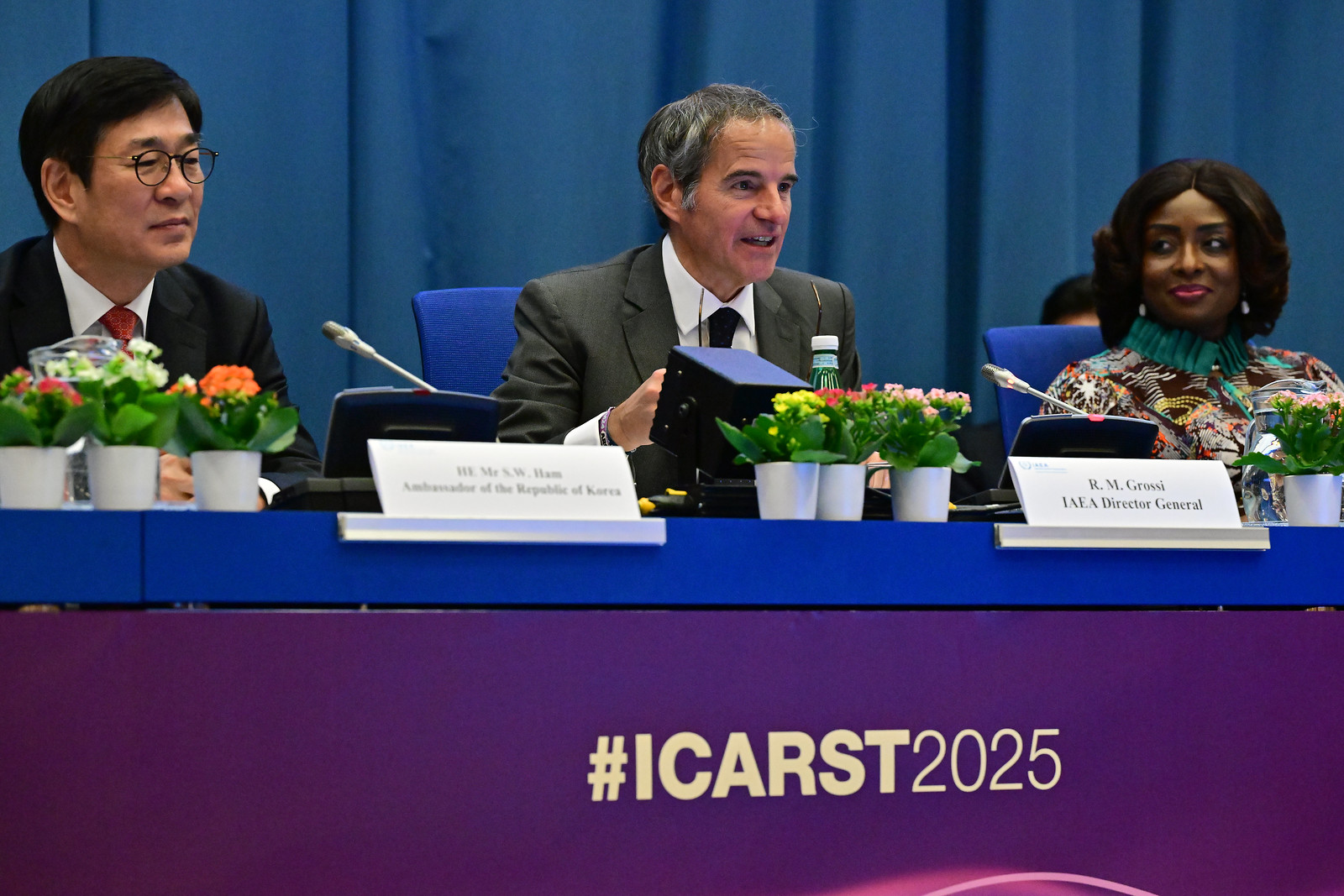Global Experts and Leaders to Convene at ICARST-2025 for Groundbreaking Discussions
In 2025, a significant global event is set to take place, gathering around a thousand experts, policymakers, and industry leaders. This event is the International Conference on Applications of Radiation Science and Technology (ICARST), a pivotal occasion for those in the field of radiation science and technology. It promises to be a fertile ground for exchanging knowledge and ideas, with a wide array of topics on the agenda.
Diverse Topics and Cutting-Edge Innovations
The conference will be rich with content, featuring plenary presentations, panel discussions, and poster sessions. These sessions will cover a broad spectrum of subjects within the field, showcasing the latest advancements and innovations. Here are some key topics that attendees can look forward to:
- Advancements in Radiation Chemistry, Science, and Technology: The conference will delve into the latest breakthroughs in radiation chemistry and technology, exploring how these advancements are shaping the future.
- Radiation-Modified Materials for Industrial Applications: Discussions will highlight how radiation-modified materials are being used effectively in various industrial applications, enhancing performance and efficiency.
- Non-Destructive Testing Applications: With a focus on cutting-edge methods like AI-driven neutron and muon radiography, experts will discuss how these techniques are revolutionizing non-destructive testing.
- Dosimetry, Standards, and Quality Management of Irradiation Facilities: Ensuring safety and accuracy in irradiation facilities is crucial. The conference will cover best practices in dosimetry, along with standards and quality management.
- Environmental Applications: Radiation sciences play a significant role in environmental remediation and post-disaster management. These applications will be explored in detail, highlighting their importance in addressing environmental challenges.
- Emerging Radiation Sources: The conference will introduce attendees to next-generation radiation technologies, including advanced gamma rays, electron beams, and X-ray technologies.
Innovations in Radiotracers and Control Systems
In addition to the topics mentioned, experts will present innovations in specific areas such as radiotracers, sealed radioactive sources, and nucleonic control systems. These technologies are critical for industrial process control and optimization, offering new ways to enhance efficiency and effectiveness.
Education, Training, and Networking Opportunities
ICARST-2025 is not only about technical discussions; it also places a strong emphasis on education and training. The conference aims to ensure that the next generation of experts is well-prepared to drive innovation in radiation science and technology. Attendees will have access to a variety of educational resources, training sessions, and certification opportunities.
Moreover, the conference will host several side events and networking opportunities. These activities are designed to foster collaboration and knowledge sharing among participants, helping to build a strong community of professionals dedicated to advancing the field.
Accessible Conference Proceedings
For those who cannot attend in person, ICARST-2025 offers a solution: the conference proceedings, including recorded sessions and key takeaways, will be made available to participants and the broader scientific community. Additionally, the conference will be livestreamed, allowing anyone interested to join virtually and gain insights from the discussions.
IAEA’s Role in Advancing Radiation Science and Technology
The International Atomic Energy Agency (IAEA) plays a crucial role in helping countries maximize the benefits of radiation science and technology. Through technical cooperation, expert guidance, and training programs, the IAEA supports nations in integrating these technologies into their national plans. This includes addressing critical challenges in health, industry, and environmental sustainability.
The IAEA also fosters knowledge transfer through initiatives like Collaborating Centres and Coordinated Research Activities. These efforts are complemented by peer reviews, safety standards, and technical documents, all of which contribute to a safer and more efficient application of radiation science and technology.
Conclusion
In conclusion, ICARST-2025 is poised to be a landmark event in the field of radiation science and technology. With its diverse range of topics, innovative presentations, and opportunities for education and networking, the conference is set to be an invaluable platform for professionals and experts worldwide. Whether attending in person or virtually, participants will have the chance to gain new insights, share knowledge, and contribute to the advancement of this vital field. For more information, interested parties are encouraged to visit the official ICARST-2025 website.
For more Information, Refer to this article.


































